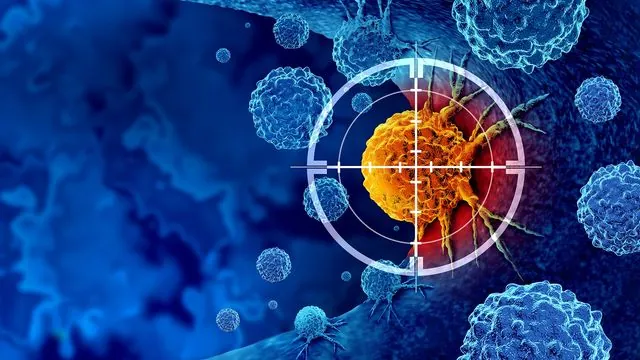
Revolutionary Epigenetic Discovery Could Change the Face of Colorectal Cancer Treatment!
2025-01-16
Author: Sarah
Groundbreaking Discoveries in Colorectal Cancer Research
A groundbreaking new study reveals that a little-known mouse protein may hold the key to disrupting the cancer-promoting chemical alterations of genes related to colorectal cancer, paving the way for innovative treatments against solid tumors. Researchers from both the Johns Hopkins Kimmel Cancer Center and the Chinese Academy of Sciences explored the potential of the mouse protein STELLA, finding it to be more effective in combating tumor growth than its human counterpart.
Details of the Study
Published on January 8 in the respected journal *Nature Communications*, the research highlights how STELLA targets epigenetic factors—chemical modifications to genes that can spur cancer development without altering the DNA sequence. The study points out that addressing these epigenetic changes is crucial, especially since conventional treatments that focus solely on DNA mutations do not address the broader complexities of cancer biology.
Expert Insights
Dr. Stephen Baylin, a prominent oncologist involved in this study, emphasized the urgency of finding novel therapeutic approaches to counteract DNA methylation abnormalities—one of the significant contributors to cancer progression. “Solid tumors are among the leading causes of cancer-related deaths, and we urgently need new strategies,” said Baylin.
Focus on UHRF1
The hunt for effective epigenetic therapies has intensified over the last decade, and while therapies targeting blood cancers have gained traction, solid tumors have largely remained underserved. UHRF1, a major epigenetic target highly expressed in various solid tumors, acts as a facilitator for adding methyl groups to tumor suppressor genes. By inhibiting UHRF1, researchers believe they can halt the processes allowing cancer to flourish.
Key Findings on STELLA
Since 2014, evidence has suggested that STELLA effectively sequesters UHRF1, preventing its harmful activities. The researchers identified significant differences between the mouse version of STELLA (mSTELLA) and the human variant (hSTELLA)—notably, that the former binds to UHRF1 with greater affinity. They discovered that only 31% of the amino acid structures in mSTELLA and hSTELLA are identical, revealing a potential target for therapy creation.
Innovative Lipid Nanoparticle Therapy
In a promising twist, the researchers successfully adapted the active components of mSTELLA into a cutting-edge lipid nanoparticle therapy. These tiny drug delivery systems, functioning similarly to mRNA vaccines for COVID-19, were shown to be effective in human colorectal cancer cells by activating crucial tumor suppressor genes while inhibiting tumor growth in mouse models.
Broader Implications and Future Directions
The implications of this research extend beyond colorectal cancer alone, as UHRF1's role as an oncoprotein is recognized in various cancer types. This breakthrough signifies a vital step toward creating effective treatments for multiple cancers, and the research team is optimistic about advancing this innovative therapy into clinical trials for patients.
Conclusion and Next Steps
This exciting advancement in cancer treatment could revolutionize how we understand and combat solid tumors. The researchers are now looking deftly toward the future, eager to bring these findings to the forefront of patient care. This development may very well be a game-changer in the ongoing battle against cancer! Stay tuned for more updates as this research moves into the next phase of clinical application!

 Brasil (PT)
Brasil (PT)
 Canada (EN)
Canada (EN)
 Chile (ES)
Chile (ES)
 Česko (CS)
Česko (CS)
 대한민국 (KO)
대한민국 (KO)
 España (ES)
España (ES)
 France (FR)
France (FR)
 Hong Kong (EN)
Hong Kong (EN)
 Italia (IT)
Italia (IT)
 日本 (JA)
日本 (JA)
 Magyarország (HU)
Magyarország (HU)
 Norge (NO)
Norge (NO)
 Polska (PL)
Polska (PL)
 Schweiz (DE)
Schweiz (DE)
 Singapore (EN)
Singapore (EN)
 Sverige (SV)
Sverige (SV)
 Suomi (FI)
Suomi (FI)
 Türkiye (TR)
Türkiye (TR)